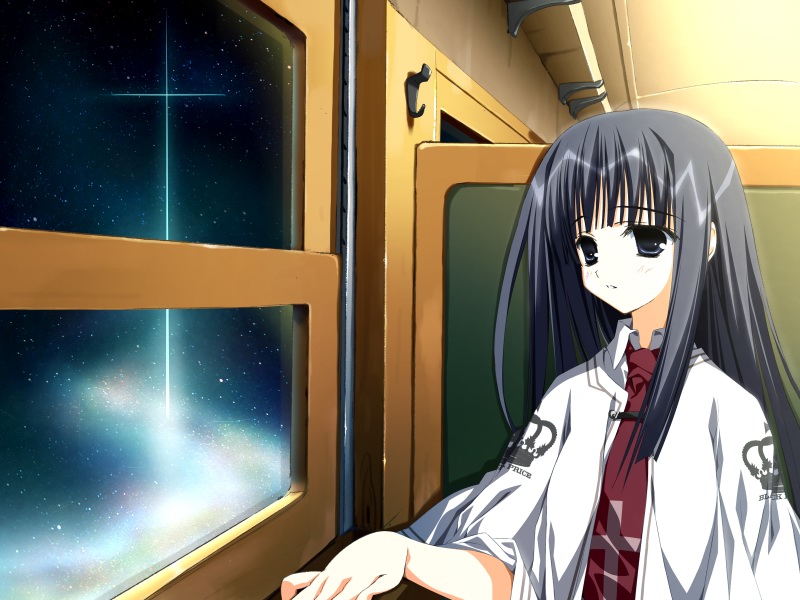
6.374 Even if everything we wished were to happen, this would only be, so to speak, a favour of fate, for there is no logical connection between will and world, which would guarantee this, and the assumed physical connection itself we could not again will.
Ludwig Wittgenstein – Logico tractatus philosophicus
In other words, an individual who seeks change, who seeks happiness must do so on virtue of their own agency if they’re to actually guarantee results. Of course, there’s the chance that you’ll be ‘fixed,’ but this is nothing more than luck. In order to obtain something, you can’t just wish or want it, you have to go out of your way to obtain it. Whether this means creating a new reality for yourself (by means of an internal world), or in simply accepting what’s there in order to move on, the important part is that it stresses the individual’s agency.
I personally think that SubaHibi is by far, the most complex visual novel which I’ve read. It’s a work which beauty grows further upon its understanding, and a work, which is frustrating to understand. I believe that within this entry, I’ve covered at best, the basic fundamentals of the work — I’ve yet to begun to truly uncover the true richness, depth of the work (and as we know — the richer the work is, the richer the internal world of Otonashi Ayana — the more radiant her existence is). As discussed within the initial review of the work — Subahibi is a work which in itself, tells a fantastic, interesting story (a tale of friendship, of struggle & triumph). But, if we’re to examine the other aspects of the work, we begin to see much more.
In the end, I hope that this entry was worth the effort to read – that you, the reader, managed to obtain something out of this (perhaps peace, or another piece to a still unsolved puzzle). As mentioned previously, I could not have done this entry without the guidance of Ayana-san (who I hope, is not bothered by the fact that I used his input so extensively through this entry). If there are any points of concern, then feel free to raise them — as mentioned at the beginning, I’m more than willing to change, to correct them.
At the beginning of my review, I had quoted the Dickinson poem alluded to within the work. Initially, when I had read it, I had a particular interpretation in mind. After learning of the events written within this entry, the meaning of the interpretation’s changed. I wonder if it’d be the same for you too —
THE BRAIN is wider than the sky,
Emily Dickinson, c. 1862
For, put them side by side,
The one the other will include
With ease, and you beside.
–
The brain is deeper than the sea,
For, hold them, blue to blue,
The one the other will absorb,
As sponges, buckets do.
–
The brain is just the weight of God,
For, lift them, pound for pound,
And they will differ, if they do,
As syllable from sound.